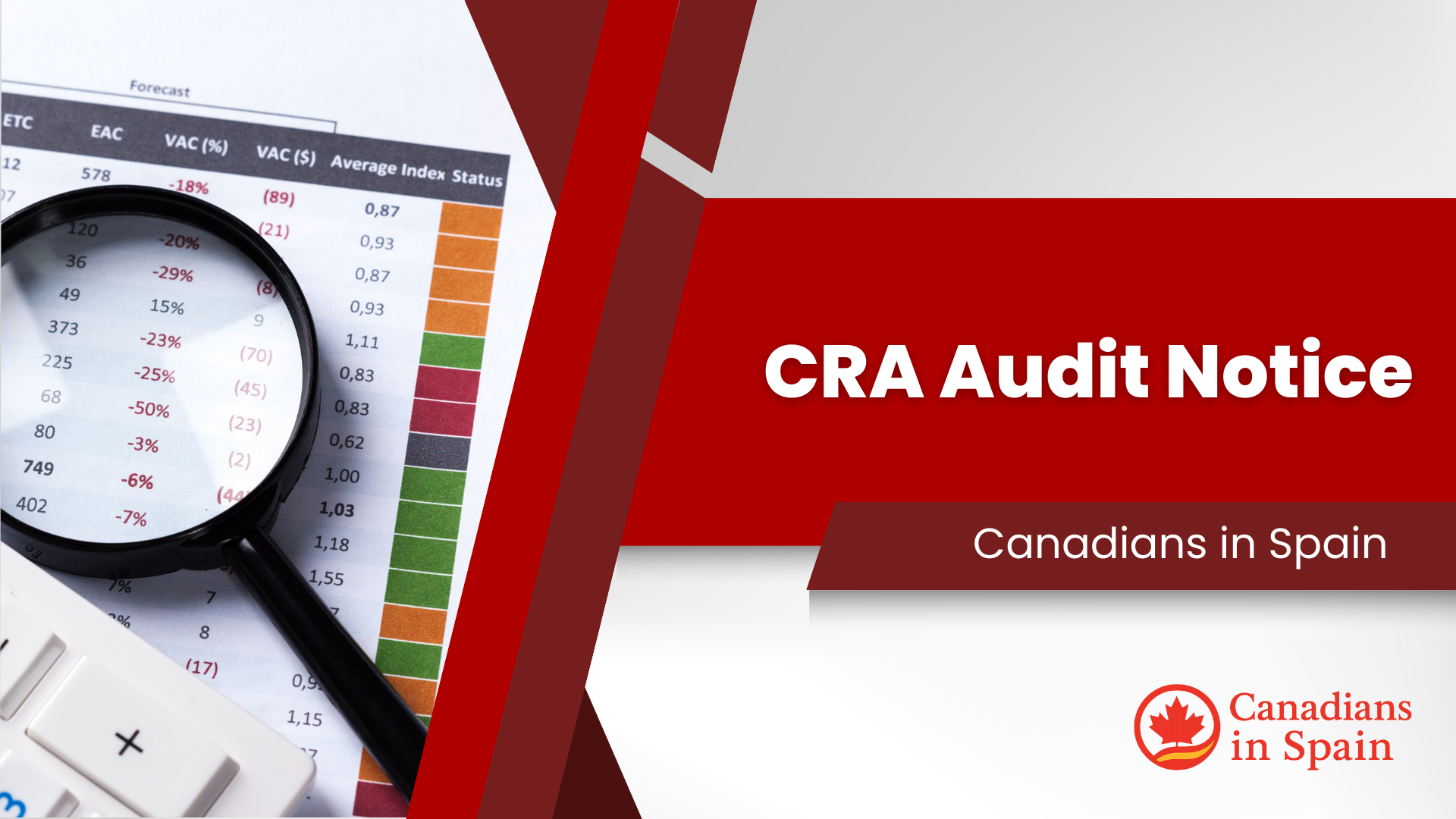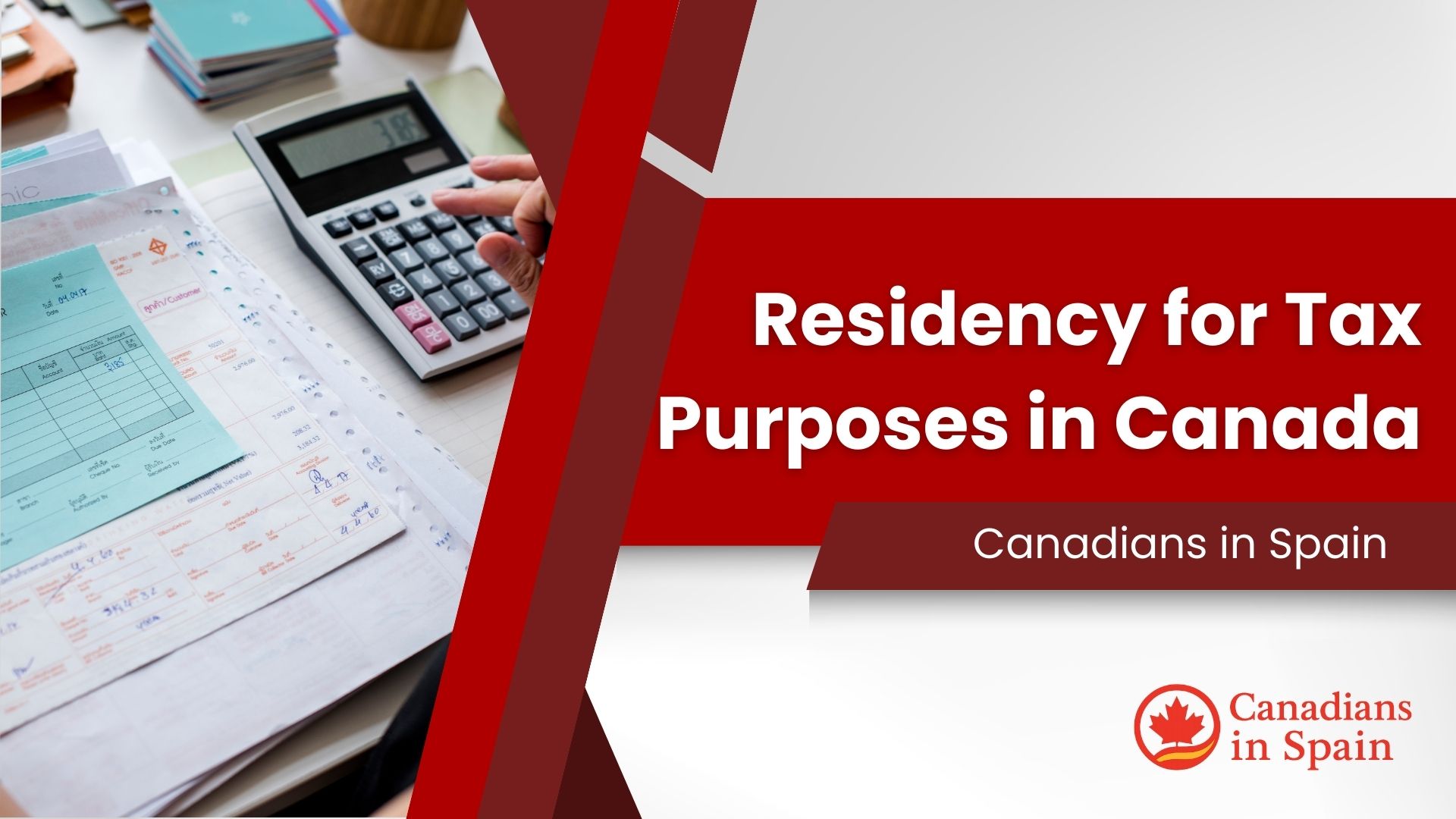What to Do If You Receive a CRA Audit Notice
Living in Spain can feel like a dream—sunny weather, vibrant culture, and the chance to experience life in one of Europe’s most beautiful countries. But for Canadians abroad, that dream can be abruptly interrupted by an official-looking envelope from the Canada Revenue Agency (CRA): a CRA audit notice. Whether you’re retired, working remotely, or enjoying a new life on the Costa del Sol, being audited by the CRA is a serious matter that requires a calm and strategic response.
Ignoring the letter is not an option. This article breaks down what a CRA audit notice involves, why Canadians living in Spain are often targeted, and the step-by-step actions you must take to navigate the process successfully from abroad.
Why Would the CRA Audit a Canadian Living in Spain?
The CRA’s primary interest in expats is ensuring they have correctly declared their residency status and are compliant with Canadian tax law. When you claim to be a non-resident for tax purposes, the CRA wants to be certain you have truly severed significant ties with Canada. A CRA audit notice is often triggered by red flags that suggest you may still be a factual resident.
Common reasons for being audited include:
- Lingering Residential Ties: Claiming non-residency while still maintaining a Canadian home, bank accounts with Canadian addresses, a provincial driver’s license, or active health card.
- Canadian-Source Income: Receiving income from Canada, such as rental income from a property, RRSP withdrawals, or capital gains, without the proper non-resident filings (like an NR4 or NR6).
- Improper Tax Exit: Failing to file a final “departure tax return” in the year you left Canada, which is where you report the “deemed disposition” of your assets.
- Inconsistent Information: Filing Form NR73, “Determination of Residency Status,” with information that seems contradictory or incomplete.
- Information Sharing: Increased automatic information sharing between international tax agencies under the Common Reporting Standard (CRS) can alert the CRA to your financial activities abroad.
While Spain is not a tax haven, the CRA closely reviews all residency exits to prevent tax avoidance, making a properly documented departure essential.
What a CRA Audit Notice Looks Like
A CRA audit notice will always arrive as a formal letter, either by mail to your last known address or through your secure “My Account” portal on the CRA website. The letter will not always use the word “audit”; terms like “review,” “investigation,” or “examination” are also common.
Typically, the letter will request:
- Documentation related to a specific tax year or issue.
- Proof of your non-residency status (e.g., Spanish visa, TIE card, employment contracts).
- Details of your foreign bank accounts, income sources, or assets.
- Explanations of significant financial transactions.
Important: The CRA will never initiate an audit via email, text message, or phone call. Official communication is always in writing. Be wary of scams.
Step-by-Step: What to Do If You Receive a CRA Audit Notice in Spain
1. Don’t Panic, but Don’t Ignore It
Ignoring a CRA audit notice is the worst thing you can do. The deadlines are strict, and a lack of response can lead to the CRA making assumptions in their favor, resulting in:
- A reassessment of your taxes based on their own calculations.
- Significant penalties and interest charges.
- Being classified as a Canadian resident for tax purposes, even retroactively.
2. Read the Letter Carefully
Understand exactly what the CRA is asking for. Create a checklist based on their requests:
- Are they questioning your residency status for specific years?
- Are they requesting bank statements, proof of employment, or your Spanish tax returns (Declaración de la Renta)?
- Is the focus on a specific income source, like rental income or capital gains?
- Note the deadline and the contact information for the assigned CRA agent.
3. Gather Comprehensive Supporting Documents
A well-documented case is your strongest defense. Start collecting relevant documents, which may include:
- Proof of Spanish Residency: Your TIE card, rental contracts or property deeds, utility bills in your name, and your empadronamiento certificate.
- Proof of Severed Ties in Canada: The sale agreement for your Canadian home, termination letters for rental agreements, final utility bills, and a letter confirming the cancellation of your provincial healthcare.
- Travel and Immigration Records: Passport stamps and flight itineraries to show time spent outside of Canada.
- Financial Records: Spanish bank statements showing local activity, and your Spanish tax returns.
4. Do Not Volunteer Extra Information
Answer the CRA’s questions fully, honestly, and clearly. However, do not include unnecessary documents or offer additional explanations unless specifically requested. Over-disclosing can lead to “scope creep,” where the auditor begins asking new questions about unrelated topics. Stick to the facts requested in the CRA audit notice.
5. Consult a Cross-Border Tax Expert
This is the most critical step. A tax professional familiar with the Canada-Spain tax treaty, CRA audit procedures, and non-residency rules is invaluable. They can:
- Help you frame your response in a way the CRA understands.
- Ensure your documentation is complete and correctly presented.
- Act as a buffer and communicate with the CRA on your behalf.
- Provide legal and tax context for your situation.
6. Submit Your Response On Time
Send your reply by the requested deadline, using a trackable method like registered mail or the CRA’s secure online portal. Keep a copy of everything you send. If you need more time to gather documents, your advisor can often request a reasonable extension on your behalf.
Preventive Measures for Canadians in Spain
To avoid a CRA audit notice or minimize its risk, proactive planning is key:
- File a Proper Departure Return: In the year you leave Canada, file a final tax return indicating your date of departure.
- Sever Residential Ties: Make a clean break. Sell your primary home, close unnecessary bank accounts, and cancel your provincial health card and driver’s license.
- Maintain Solid Spanish Residency Evidence: Keep records of your padrón, utility bills, and local memberships. This proves Spain is your center of vital interests.
- Manage Canadian Assets Properly: Avoid contributing to RRSPs or TFSAs as a non-resident. File the appropriate forms (like NR4 or NR6) for any Canadian-source income.




